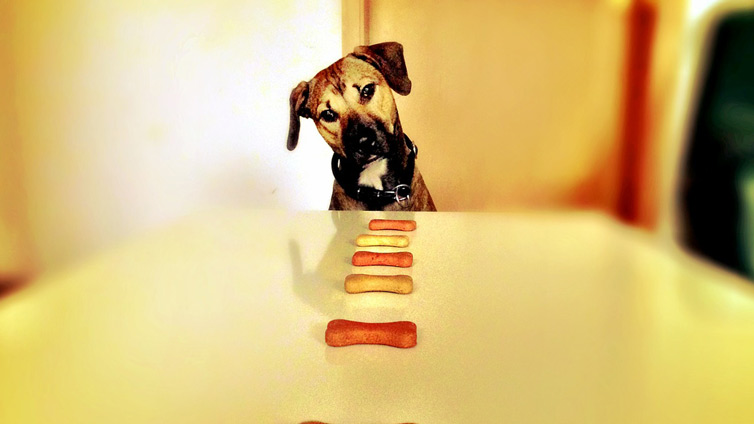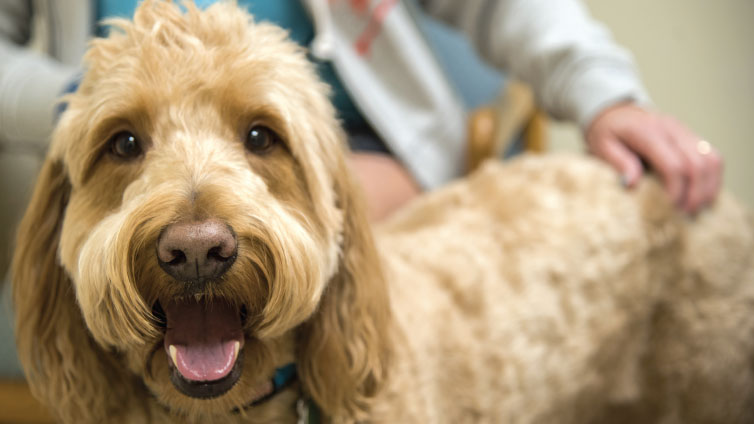If your dog won’t eat, these 10 reasons will help you determine what your dog is trying to tell you. Pay attention to their eating habits, and consult with the vet to find out if your puppy or an older dog has some health issues.
Dogs can often experience a lot of issues that cannot be determined easily and they may need to be taken to the vet.
Don’t neglect the signs, as your dog might be just trying to tell you that he isn’t feeling well and that something is wrong.
Loss of appetite is a very common sign with many health issues, but it may also be brought about by a change in routine and environment.
Don’t panic, but try to figure out the cause and seek professional help if necessary.
If your puppy or an older dog is refusing to eat but is drinking water, these signs can indicate a serious problem.
In order to prevent further health issues, especially when your dog is not eating but drinking water take your dog to a vet for testing so that you can check if there are any underlying problems.
Before you take your dog for a checkup, let’s go through the 10 most common reasons why a dog won’t eat, which will help you diagnose the problem.
1. It Is The First Sign Of Illness
When your puppy or dog is ill or not feeling well, they are prone to becoming passive and sleepy, and they lose their appetite.
This doesn’t necessarily mean they are suffering a serious illness, as they might have just hurt themselves while running or playing. Pay attention to their movements and check if they are walking properly.
While it may just be a sign of a minor health issue, loss of appetite can also be an indication of a serious illness such as kidney failure,(1, 2) dental disease (3), strong pain, liver problems or even cancer.
Read further to understand why your dog is not dog not eating but drinking water and vomiting.
This is more common in dogs than you believe it to be – even your puppy may not be eating but drinking water.
Also, it’s more frequent in senior dogs to not eating, but drinking lots of water.
So, make sure you take your dog to the vet and do some tests to find out the cause.
SUMMARY:
Loss of appetite is a tricky symptom. It can mean a minor health issue or be a sign of a serious illness.
2. Your Dog Had A Vaccination Recently
Vaccines are highly effective in preventing a wide variety of serious diseases and are strongly recommended.
There is some controversy surrounding vaccination, and many people are against it, as they think they can negatively affect their dog and cause various health issues. Such claims are unfounded and have no scientific data backing them.

The fact is that vaccines prevent contagious and fatal diseases, so if you are a dog owner and you want to keep your little rascal healthy, don’t skip shots and encourage other dog owners to do the same.
Here’s a more in-depth post on puppy vaccination, with printable pdf schedule.
But sometimes vaccines are the most logical answer to the question: “Why my puppy wont eat but will drink water?”
In fact, vaccines can have some adverse effects, which aren’t serious, and a common one is loss of appetite. (4) But if your dog won’t eat for a day or two after his vaccination, then you need to take it to the vet for a checkup.
Apart from the loss of appetite, your dog may also get diarrhea and become lethargic.
The reason why some dogs have a reaction and some don’t is still open for debate, but most of the research seems to suggest that breed is one of the most significant factors.
For French Bulldog owners: Frenchies Health Issues
SUMMARY:
Loss of appetite is a common adverse event of vaccinations.
3. Unfamiliar Surroundings
When you go to a different place, the first day is a bit unusual and you find it difficult to get used to the new environment. Moreover, often many of us cannot sleep well the first night in a different bed.
Dogs are no different than us in this regard, they may also feel uncomfortable and find it difficult to get used to a new environment quickly.
When you move to a new home, or just go on a trip, your dog might refuse to eat, become lethargic, and sniff or lick everything around them during the first day.
It is new and unfamiliar territory, and they might become afraid of the new place, which can lead to anxiety, stress, and nervousness. (5)
In order to get your dog to eat, don’t leave them alone and play with them, even if they don’t feel like doing so.
Act like you are at home and use your dog’s normal food and water bowls. Your dog will quickly realize that the new place is safe and will soon act normally.
Dog Won’t Eat Alone
Sometimes, dogs refuse to eat when left alone. The basic tactic to get your dog to eat is to make them feel safe when they are alone – try to leave a radio or the TV on.
If you are often busy during the day, you should consider adopting a dog that can be left alone.
SUMMARY:
A change of environment is a stressful event for your dog that can result in appetite loss.
4. He’s Just A Picky Eater
Just like some people can be picky eaters, so can some animals. There might be some food they don’t like and don’t want to eat.
This usually happens when they get used to eating one type of food and you just change the brand or even the kind of grains or flavor.
You may have spoiled your puppy or an older dog, so your furry diva will probably continue refusing the new food. One of the ways to get them used to the new food is to mix it with the one they like.

Even if you have changed the brand, don’t immediately assume if they don’t eat it that they are just a picky eater.
Check to see if there is a more serious problem by offering your dog a treat. If he refuses all food, including treats there is usually something more serious underlying.
SUMMARY:
If your dog doesn’t eat the food you’re serving him, it might be that he simply does not like it.
5. They Have An Upset Stomach
Dogs love investigating the environment and eating whatever they find. This may cause some stomach health issues, which can cause them to refuse to eat, but usually makes them drink a lot of water.
They can steal your food, eat a small object, and eat from trash whenever they get a chance.
Eating the food you prepared may make them sick, and not because of your cooking, but because there might be some human ingredients and foods that don’t suit them or may be poisonous for dogs.
They might just have a temporary gastrointestinal upset. The same goes for eating from the trash.
If they have swallowed a small object, they might not be able to digest it or it may get stuck in their intestinal tract, and you should take your dog to the vet immediately.
Moreover, when you take your dog to the park or a public place, they may even eat poop they find, as well as leftovers such as candy or spicy junk food.
So, search your yard and home to see if they have vomited somewhere, or had diarrhea. (6)
If there is no blood in the vomit or stool, then you can wait for them to expel something from their system.
On the other hand, if your dog has diarrhea and vomits longer than 24 hours, take them to the vet.
SUMMARY:
If your dog is avoiding food and has some additional symptoms such as diarrhea or vomiting, he probably has a tummy issue.
6. Routine Change
You may get a new job or change your schedule, which makes you change when you are feeding your dog and taking him for a walk.
If they have had the same routine for a long period of time, they will tend to stop eating when such a change occurs. The change makes them nervous, especially if you change the time of the walks.
This doesn’t mean you should organize your life according to your dog’s metabolism, but you need to make a change slowly and let them get used to that.
Dogs like routine and quickly learn when they are eating, going for a walk, and even staying home alone.
SUMMARY:
Appetite loss is a normal reaction to a change in your dog’s feeding schedule.
7. You Left Your Dog Alone For The First Time
Your puppy may refuse to eat if you leave them alone for the first time. (7)
You need to start training them to stay alone without getting depressed or seeking revenge by refusing to eat. There will certainly be a time when they will have to be alone, so try training them from the beginning.

Leave your puppy for half an hour, go for a walk and see how they react.
Then gradually increase the time you are out of the house. Then leave them for two hours, and after some time, your dog will get used to being alone.
When leaving him for the first time, make sure you put fragile things high up on the shelves, and don’t leave any food where they can reach it. This way you will prevent a huge mess.
SUMMARY:
Separation anxiety, just like any anxiety, can also lead to a decreased will to eat.
8. Older Dogs Who Won’t Eat
If you have an older dog, and he suddenly stops eating or only eats small amounts of food, then don’t assume it’s just because they’re old.
Usually, as dogs become older, they become weaker and more prone to various health issues, dental problems being the most common.
This makes it hard for them to eat their food, as even light chewing can hurt.
Ask your vet to check your dog’s teeth and also about the food your older dog should be consuming and if some additional vitamins should be included in their diet. (8)
SUMMARY:
Separation anxiety, just like any anxiety, can also lead to a decreased will to eat.
9. They Are Intimidated By Another Pet
If you’ve had your dog for some time, and then introduced another pet, they might react to the new member by refusing to eat.
They can also be jealous, so you need to show them that nothing has changed and you need to continue playing and spending quality time with them like before.

It will take them some time to get used to a new family member, but soon they’ll start playing together and will be best friends.
Another reason might be that the new dog is a quick eater, and he eats everything. Don’t give them food from the same bowl, instead have a special bowl for each dog. The same applies to water bowls.
Some dogs like to eat alone, without another dog or a cat trying to get them to play.
If you separate their food, and your dog still refuses to eat, try leaving your dog alone in the room to eat without the other dog bothering them.
SUMMARY:
If you got a new pet, your dog might be jealous and react by avoiding food.
10. Constipation
When constipated, dogs tend to suffer abdominal pain, which makes them dehydrated and suppresses their appetite. (9)
If they seem lethargic, not playful, and are straining to pass stools, then you might want to ask your vet for advice on meds that can help them with constipation.
This is a common reason why your dog doesn’t want to eat, and dealing with dog constipation definitely isn’t easy.
Ask your vet everything, even if you think your question is something everyone knows.
SUMMARY:
Having difficulties with passing stools may result in appetite loss.
Diagnosing Loss Of Appetite In Dogs
Having a dog is a huge responsibility. As a dog owner, you know how much time, energy, and finances owning a dog requires.
Still that all pays off once you look at those eyes, right? As a dog owner, you know that your veterinarian is your best friend. Your veterinarian is the only person who can help you when the times with your dog are rough, and who can set the right therapy and diagnose the problem.
In fact, your veterinarian is the only one who can help you diagnose loss of appetite in dogs.
To set the right diagnosis, the veterinarian will ask you about the dog’s behavior, habits, and will discuss the dog’s medical history.
There will also be a lot of questions, about weight loss or vomiting. It’s important to provide as much information as possible so you can help your dog get the right treatment as soon as possible.
Expect gums and teeth check to make sure thats not the source of the problems. You may also expect some tests, such as X-rays, ultrasound, taking blood, urine, and fecal samples, to check for illness and disease.
Here is how you can motivate your dog to eat and be healthier.
Tips And Tricks To Make Your Dog Eat

If your dog doesn’t have health issues, but is only a picky eater or doesn’t want to eat with other pets or in a new home, then consider some of the following tricks:
- Cut on the treats – treats can make them able to stay persistent in their mission to refuse food
- If you have more than one dog, put them in separate crates or rooms while eating.
- Don’t constantly change your schedule. If there is a need for a change, then make sure you come up with a new schedule that will be more consistent. Don’t feed your dog at a specific time one day, and then a different time the next day
- Mix the new food with the food your dog is used to, in order to get them to like it. With every meal slowly decrease the amount of the old food and increase the amount of the new food
- Try hand feeding. This doesn’t apply to puppies, as they might get used to that, and then refuse to eat from a bowl

These are the most common reasons why your dog doesn’t want to eat.
Even if you find out that the reason your dog isn’t eating is one of the harmless ones, it is better to take him to the vet for a check-up , just to be sure.
People often say – ‘My dog isn’t eating but acting normal’ and yet they don’t know what to do. This is also a great time to contact your veterinarian.
It’s always a good idea to get an expert to to confirm that there are no serious health issues involved.
If there is no health issue, and your dog still refuses to eat, your vet will probably prescribe some appetite-stimulating medications and helpful advice.
We hope you found this article interesting. If so, feel free to spread the word!
[social]
Read Next: 9 Simple Ways to Keep Your Dog Entertained Indoors


